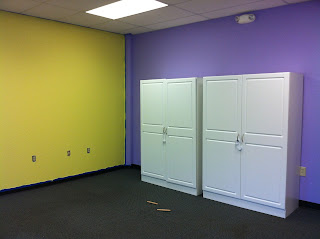By Lisa Rowell, on June 14th, 2012
Edited Excerpt from
Music and…Reading
For children, all the work they put into learning to decipher the code that
makes up written words finally pays off when they have the “aha” moment that the
squiggly lines on their bedroom door spell their name. The whole point of
bothering to learn to read, of course, is to understand the meaning of written
words, which reading experts call comprehension.
Researchers have found that children who participate in music instruction are
more likely to score higher on tests of reading comprehension. A meta-analysis
of 25 studies, some involving more than 500,000 students, found a strong and
reliable association between music instruction and reading comprehension test
scores. Children with music experience do better at understanding written words
for many reasons, including music’s proven impact on:
How it works in ABC Music & Me
Imagine an early childhood educator sitting on the floor, a circle of small
children around her. She’s reading a book aloud—or better yet, singing a musical
story. The layers of learning going on in this scenario are staggering. The
children around her are coming to understand how print works (in English:
left-to-right on a page, front-to-back in a book, etc.). They are absorbing
brand-new vocabulary (in context) from the song or story, building comprehension
and plot-prediction skills—and if the song is rhyming, predicting rhyme scheme
as well. They’re recognizing the value of expressiveness as the teacher’s face
moves to boost the meaning of the story and her voice rises and falls in pitch
and volume. The children are, quite simply, learning that language— whether
written (read as symbols) or spoken (heard as sound)—has meaning and value . . .
the most basic understanding that can be tied by research to reading
success.
To experience for yourself how ABC Music & Me uses music to teach early
literacy and language, email us at






